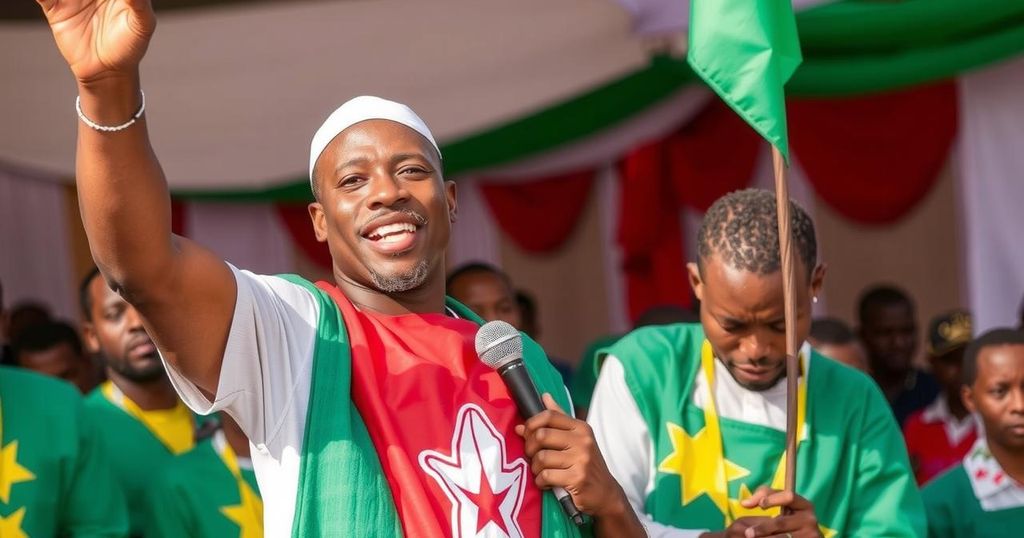Chad’s Ruling Party Dominates Controversial Parliamentary Election

Chad’s ruling Patriotic Salvation Movement, led by President Mahamat Idriss Deby, won 124 of 188 National Assembly seats in a controversial parliamentary election largely boycotted by opposition parties. With a participation rate of 51.56%, critics described the election as a ‘charade.’ This election was presented as a step toward democracy post-2021 military rule but has raised questions about its legitimacy amid prevailing security challenges and changes in international military alliances.
Chad’s ruling Patriotic Salvation Movement (PSM), led by President Mahamat Idriss Deby, has achieved a significant majority in the recent parliamentary election, winning 124 out of 188 National Assembly seats, as confirmed by the head of the electoral commission, Ahmed Bartchiret. This election, held on December 29, 2022, was heavily boycotted by opposition parties, leading to claims of diminished electoral legitimacy, with a turnout reported at 51.56 percent. Opposition groups labeled the electoral process a mere “charade,” echoing concerns regarding its credibility, which they associated with last year’s presidential election that faced similar scrutiny.
Presented as a crucial step towards democracy following the military transition of power in 2021 after the death of longtime ruler Idriss Deby Itno, the election also encompassed municipal and regional contests, marking the nation’s first parliamentary election in over a decade. Despite promises from President Deby that the vote would initiate a desired era of decentralization by redistributing power, tensions remain high as Chad copes with significant security threats and evolving geopolitical relations, particularly concerning military ties to France.
Chad’s political landscape has been marked by instability following the death of Idriss Deby Itno, who ruled for three decades before his son took over as a military leader. Following Mahamat Deby’s ascension, he promised a transition towards democracy. However, this transition has been marred by allegations of undemocratic practices, particularly in light of opposition parties boycotting the recent parliamentary election. Additionally, the security situation remains precarious, with challenges stemming from armed groups in the Lake Chad area and shifts in alliances, such as the recent severing of military ties with France, similar to trends witnessed in neighboring countries suffering from military coups.
The recent parliamentary elections in Chad have underscored the ongoing tensions between the ruling party and opposition factions. With a majority secured by the Patriotic Salvation Movement amidst an opposition boycott and claims of electoral uncredibility, the implications for Chad’s political evolution remain uncertain. This election, which the ruling party promotes as a pivotal step towards democracy, faces contention from those who argue that it fails to meet legitimate democratic standards.
Original Source: www.aljazeera.com







